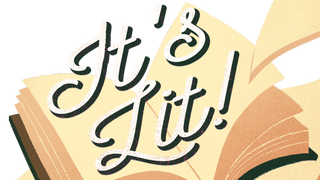Screenshot: Amistad Publishing, City Lights Publishing, Hachette Books
It’s Lit! It’s Lit! Where all things literary live on The Root “No scene from African American literary history is more familiar than that of Frederick Douglass’s learning to read,” reads the opening line of the introduction of Forgotten Readers: Recovering the Lost History of African American Literary Societies
This year, we got an extra day in our still too-short Black History Month, but it’s now coming to an end—and as we well know, our history deserves celebrating year-round. Since we know you not only read but want to keep that same BHM energy every day of the year, we’ve compiled a brief list of books that celebrate our nuanced and varied history in America (and beyond) on page after page.
Unfortunately, we’re not a library, but you can check them all out in our slideshow below. Because remember: our stories are the stuff black history is made of.
It’s no secret that The Root’s co-founder, scholar, educator, historian and author Henry Louis “Skip” Gates Jr., has made “finding our roots” his mission. In his 2019 New York Times bestseller, Stony the Road: Reconstruction, White Supremacy, and the Rise of Jim Crow Screenshot: Penguin Press (Amazon)
We lost civil rights giant Julian Bond in 2015, but his words, philosophies and steadfast commitment to justice live on in the highly anticipated Race Man: Selected Works, 1960-2015 Race Man promises to help future generations understand the impact of this remarkable man, as says Chad Griffin, former President of the Human Rights Campaign, on the book’s jacket, writing, “The fight for civil rights has had many heroes, but, as these pages make clear, few have loomed as large as Julian Bond…More importantly, they will live in a world that is far more just and far more equal because of him.” Screenshot: City Lights Publishing (Amazon)
The writing of Zora Neale Hurston is the gift that keeps on giving, as evidenced by the recent publications of never-before-seen works from the Harlem Renaissance journalist and author. In January, more of Hurston’s work made it to the public with Hitting a Straight Lick With a Crooked Stick: Stories From the Harlem Renaissance Screenshot: Amistad Publishing (Amazon)
Many of us live the realities of being “Black,” but how did we become that way? Becoming Free, Becoming Black: Race, Freedom, and Law in Cuba, Virginia, and Louisiana Screenshot: Cambridge University Press (Amazon)
Advertisement You can skip ad after 1 second
You can go to the next slide after 1 second
Ed Gordon is one of our most revered journalists, and in Conversations in Black: On Power, Politics and Leadership Screenshot: Hachette Books (Amazon)
In the aftermath of the mass murder that took nine black lives at “Mother Emanuel” African Methodist Episcopal Church in Charleston, S.C. in 2015, many were struck—and others dismayed—by the public stance of forgiveness taken by some members of the surviving families. In Grace Will Lead Us Home: The Charleston Church Massacre and the Hard, Inspiring Journey to Forgiveness Screenshot: St. Martin’s Press (Amazon)
“In the fall of 1959, Harvard recruited an unprecedented eighteen ‘Negro’ boys as an early form of affirmative action. Four years later they would graduate as African Americans,” reads the synopsis of the pseudo memoir The Last Negroes at Harvard: The Class of 1963 and the 18 Young Men Who Changed Harvard Forever Screenshot: Houghton Mifflin Harcourt (Amazon)
Source link
 Black America Breaking News for the African American Community
Black America Breaking News for the African American Community
